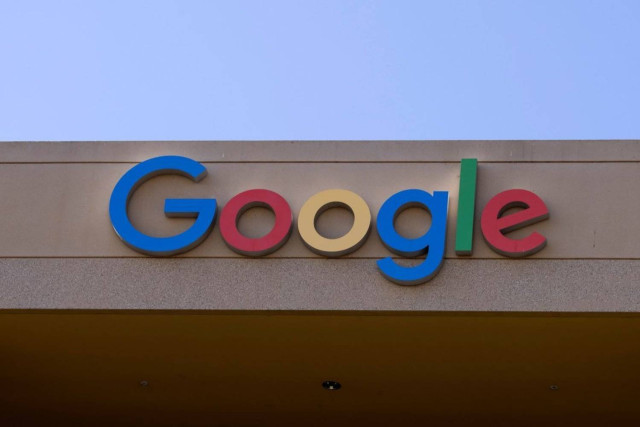One month after a judge declared Google's search engine an illegal monopolist, the tech giant faces another antitrust lawsuit that threatens to break up the company, this time over its advertising technology.
The Justice Department, joined by a coalition of states, and Google each made opening statements on Monday to a federal judge who will decide whether Google holds a monopoly over online advertising technology, The AP reported.
The regulators contended that Google built, acquired and maintained a monopoly over the technology that matches online publishers to advertisers.
Dominance over the software on both the buy side and the sell side of the transaction enables Google to keep as much as 36 cents on the dollar when it brokers sales between publishers and advertisers, the government contended in court papers.
They alleged that Google also controls the ad exchange market, which matches the buy side to the sell side.
“It's worth saying the quiet part out loud,” Justice Department lawyer Julia Tarver Wood said during her opening statement. “One monopoly is bad enough. But a trifecta of monopolies is what we have here.”
Google said the government's case was based on an internet of yesteryear, when desktop computers ruled and internet users carefully typed precise World Wide Web addresses into URL fields.
It said advertisers now are more likely to turn to social media companies like TikTok or streaming TV services like Peacock to reach audiences.
In her opening statement, Google lawyer Karen Dunn said, “We are one big company among many others, competing millisecond by millisecond for every ad impression.”
Revenue has actually declined in recent years for Google Networks, the division of the Mountain View, California-based tech giant that includes such services as AdSense and Google Ad Manager that are at the heart of the case, from $31.7 billion in 2021 to $31.3 billion in 2023, according to the company's annual reports.
The trial that began Monday in Alexandria, Virginia, over the alleged ad tech monopoly was initially going to be a jury trial, but Google maneuvered to force a bench trial, writing a cheque to the federal government for more than $2 million to moot the only claim brought by the government that required a jury.
The case will now be decided by US District Judge Leonie Brinkema, who was appointed to the bench by former President Bill Clinton and is best known for high-profile terrorism trials including that of September 11 defendant Zacarias Moussaoui.
Brinkema, though, also has experience with highly technical civil trials, working in a courthouse that sees an outsize number of patent infringement cases.
The trial in Alexandria, Virginia, over the alleged ad tech monopoly was initially set to be a jury trial, but Google maneuvered to make it a bench trial by paying the federal government over $2 million.
The case will now be decided by US District Judge Leonie Brinkema, who has experience with highly technical civil trials.
The Virginia case comes after a major defeat for Google over its search engine, which was declared a monopolist.
The government's witnesses in the Virginia trial are expected to include executives from newspaper publishers.
Google has disputed that it charges excessive fees compared to its competitors.
The company also asserted the integration of its technology on the buy side, sell side and in the middle assures ads and web pages load quickly and enhance security.
It said customers have options to work with outside ad exchanges.
Google said the government's case was improperly focused on display ads and banner ads that load on web pages accessed through a desktop computer and failed to take into account consumers' migration to mobile apps and the boom in ads placed on social media sites over the last 15 years.
The government's case "focuses on a limited type of advertising viewed on a narrow subset of websites when user attention migrated elsewhere years ago," Google's lawyers wrote in a pretrial filing. "The last year users spent more time accessing websites on the 'open web,' rather than on social media, videos, or apps, was 2012."
The trial, which is expected to last several weeks, is taking place in a courthouse that rigidly adheres to traditional practices, including a resistance to technology in the courtroom.
Cellphones are banned from the courthouse, to the chagrin of a tech press corps accustomed to the District of Columbia trial to tweeting out live updates as they happen.
Even the lawyers, and there are many on both sides, are limited in their technology.
At a pretrial hearing on Wednesday, Google's lawyers made a plea for more than the two computers each side is permitted to have in the courtroom during trial but Brinkema rejected it.
"This is an old-fashioned courtroom," she said.




















